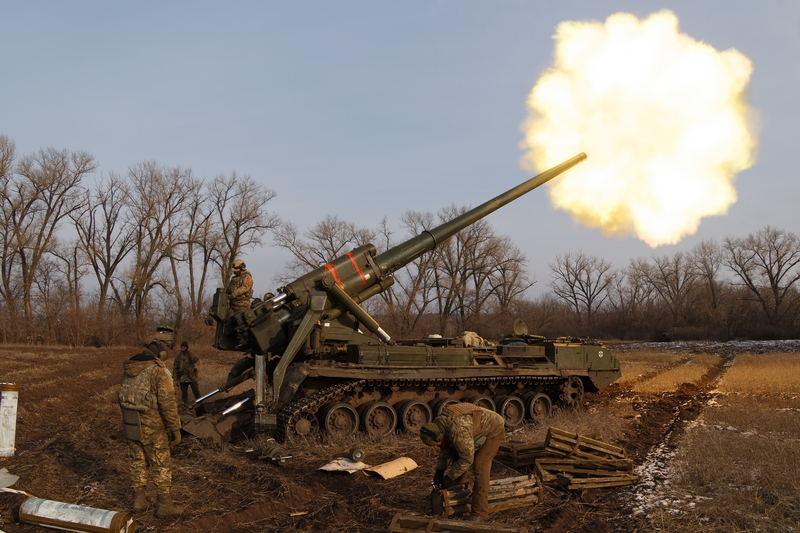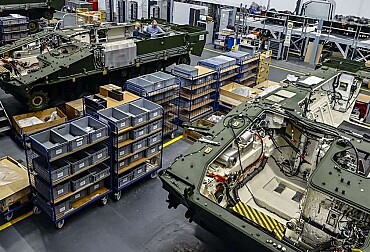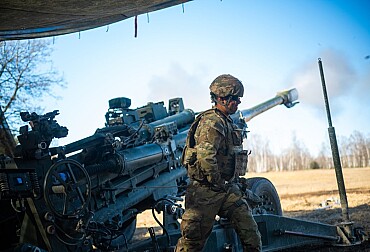The development of the conflict in Ukraine affects changes in the geopolitical space and the overall security situation in the world
The development of the conflict in Ukraine has brought the Ukrainian army to a situation where it has probably exhausted its potential to regain lost territories. But will this argue for a peaceful solution or at least a ceasefire, and will the eventual ceasefire bring an end to the conflict and prevent unwanted repercussions on international security? The end of the fighting between South and North Korea is often mentioned in the context of this solution, when the ceasefire did not end the state of war. This has resulted in long-standing strained relations between the two countries and intense arms build-up on both sides. The reality of the relationship between the two Koreas is also the long-term risk of a military conflict and, given that North Korea possesses nuclear weapons and also increasingly sophisticated nuclear warhead delivery systems, this threat is of considerable concern not only to neighbouring states.

The time factor
In the context of the time factor, soldiers would typically assess its influence on the choice of tactics, its use for preparing defences or implementing logistical measures. In the case of ground unit tactics, terrain, weather, or available forces and assets are also considered.
In the case of the conflict in Ukraine, we again see both sides fighting mud and waterlogged ground in autumn conditions. The consequence is that the difficult terrain prevents the deployment of heavy combat equipment and generally slows down any movement on the battlefield. In the face of ubiquitous reconnaissance drones, kamikaze drones, standby munitions, or ready artillery and air force assets, it is a deadly environment. Time thus plays an important role here as well. In particular, the amount of time we are exposed to the adversary's means of combat.
The time factor can also be viewed in terms of how we can use the time available to us. In the case of the conflict in Ukraine, it can be seen that while one side (Ukraine) went on the counter-offensive under time pressure, the Russian army had ample time to build up a resilient defence. Russia also took measures to mobilise its resources, including the development of war production. In this context, the question is then what kind of threat Russia will actually pose in a few years' time, even after the conflict in Ukraine has ended.
Another question is how we manage our time in political terms and how we perceive the geopolitical situation, our own interests and ambitions, but also how willing we are to listen to the interests of others?
The impact of the conflict in Ukraine and other contexts
One of the impacts of this conflict will be that a large number of states will increase funding for armaments. This will particularly affect Europe, the US, but also other countries that have power ambitions or countries that will resist pressure and potential interventions. One of the aspects that supports this approach is the weakening of respect for international law and the lack of real interest in creating a global security architecture.
Increasingly, covert operations are being used and there is exploitation of strained relations or fragile links between states, ethnicities and cultures. Some actors use their financial resources to curry favour with politicians or political parties or to fund expedient interest projects. Increasingly, so-called contractors are used to do the dirty work or conduct combat operations. However, this approach, often very effective at the time, may not pay off later. Those affected not only remember for a long time who wronged them, but often look for a way to repay the wrong done. This is not to overlook the fact that past injustices, the consequences of wars and coups, also create new potential threats for the future.
Just as the consequences of the interventions in Iraq, Libya and Syria have not been assessed, we are likely to face surprising problems after the conflict in Ukraine. In addition to the migration of war-affected citizens, one can imagine the operation of criminal groups whose members will have a history of war and often a sense of injustice and ingratitude for their service. One can imagine that they will carry the stigma of being troubled and dangerous individuals who will have difficulty integrating into society or getting a job. Will we be prepared for something like this?
New threats
Many new threats will emerge from a dynamic world, from the shift in economic and political influence or the emergence of new alliances and cooperative ties between states. We are already seeing a rapidly changing economic, political and security environment, with examples beyond Ukraine, Armenia, the Middle East or Africa. The risks of further developments in the Balkans cannot be underestimated. These include Kosovo, Serbia and Bosnia and Herzegovina.
The number of risks and threats is not only increasing, but also, in many cases, the potential for dealing with them is decreasing. Can we even imagine a situation where we are faced with multiple threats at the same time, where, for example, climate change may cause migration waves that will have the potential to collapse even hitherto rich and developed states.
Choice
The fact that the world has recently developed in such an unfavourable way, especially from the point of view of Western states, has its causes and will have its consequences. The question, and the challenge for literally everyone, is whether the solution to the current problems will be communication, diplomatic negotiations, mutual respect and respect for international law, including the agreements that have been concluded to enable sustainable development on a shared planet.










